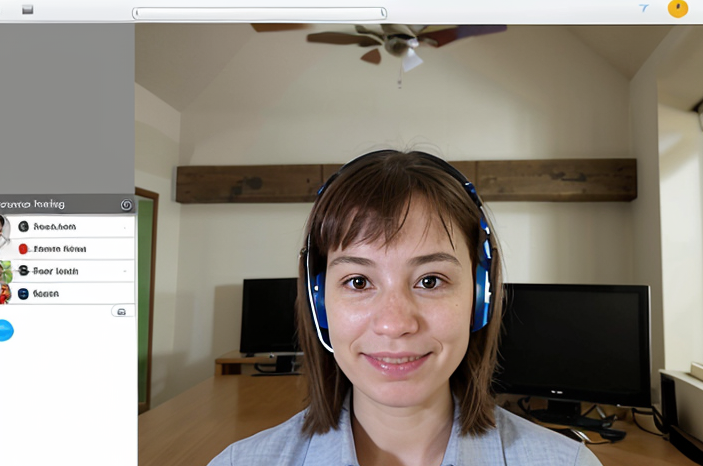Does Human Resources Require A Degree?
Human Resources has changed over decades. In the past, employers valued experience more than degrees. They often hired HR workers who learned on the job. The idea of formal education was not as common in HR. Many believed that real-world skills were enough.
Are You a Good Fit for This Job?
In earlier times, there were little to no training programs. Employers relied on simple interviews and recommendations. HR was seen as a support role, not a strategic one. Today, this idea has shifted greatly. Now, HR plays a key part in shaping company culture.
During the 1980s, universities began offering HR-specific degrees. This was a turning point. People sought education that matched job needs. Employers slowly started to prefer candidates with formal degrees. In this shift, knowledge of labor laws grew increasingly important.
In the 1990s and 2000s, technology began creeping into HR processes. When computer systems introduced software for HR tasks, many roles changed forever. This added complexity meant skills over degrees mattered too. Workers had to adapt quickly. Some chose to learn through hands-on experience instead.
Employers clung to the idea that degrees meant better knowledge. In some industry, this created a standard for hiring. The debate around needing a degree started gaining attention. In addition, many young professionals pursued HR studies. They believed a degree would guarantee a job.
Today, employers balance degrees with real-world skills. They look for candidates with practical experience too. Some companies even offer training programs to nurture talent internally. This opens doors for those who may not have a degree. Real stories show the impact of this shift.
Take Sarah, for example. She started as an intern without a degree. Through dedication and learning on-the-job, she climbed up the ranks. Now, she leads an HR team in a big company. Her tale is not unique. Many like her show changing norms.
To better understand the value of certifications in career advancement, you might want to explore the importance of HR qualifications in our comprehensive guide on HR certification.
- New attitudes towards HR education have created options.
- Employers today value certifications alongside traditional degrees.
- Experience is often the key deciding factor for hiring.
The past and present views of HR education contrast sharply. What once mattered now includes a mix of options. HR education continues to evolve, shaping future professionals.
As we move forward, new generations will redefine expectations. Just like Sarah, many more will find paths without traditional degrees.
The Case for Degrees: Why Some Believe It Matters

Many HR professionals believe that a degree can make a difference. Some hiring managers insist that degrees show a foundation of knowledge. They argue that education provides essential skills. Degrees give candidates an edge in competitive situations. “A degree usually means a deeper understanding of HR principles,” stated Lisa Johnson, a seasoned HR director.
Other professionals share this viewpoint. “Having a degree helps employees relate to various theories,” said Tom Reyes, a hiring manager. It seems that degrees offer a common language. Education can pave the way for clearer organizational fit. Companies, he continued, seek individuals with specific knowledge bases.
- Understanding labor laws
- Fostering employee relations
- Managing organizational change
Also, degrees can create a sense of credibility. This credibility builds trust among companies and employees. “It’s easier to hire someone with education,” remarked Clare Adams, an HR expert. Skills matter, but formal knowledge can outshine on-the-job experience. Degrees often set candidates apart in a crowded job market.
Yet, the discussion isn’t simple. Some argue that experience trumps education. “Many effective HR professionals have never stepped inside a classroom,” stated Noah Mills, an HR consultant. Employment and real-world skills matter a lot. Practical expertise can sometimes outweigh theoretical knowledge. The balance between degrees and skills creates a complex debate.
Some hiring managers focus less on formal education. They prioritize problem-solving and communication abilities. “It’s about finding the right person for the right role,” Clare asserted. This view creates a pathway for diverse candidates. It allows for a broader interpretation of qualifications.
This complexity reflects changing workplace dynamics. Some companies reexamine their education requirements. As notions of success shift, so do candidate evaluations. Managers must adapt to the talent pool and its capabilities. The question remains: does a degree matter more than experience?
Degrees vs. Skills: What Do Employers Really Want?
Employers often wonder what matters more. Is it a degree, or is it skills? Many in HR view both as important. Skills can sometimes outshine formal education.
Work From Anywhere Opportunities:
A degree offers a foundation, but skills demonstrate ability. Communication, problem-solving, and empathy are vital. Experience is also key. Employers respect hands-on learning.
Hiring managers at top firms share their views. Many express concern over lack of applicants with practical skills. Others prioritize a proven track record over education.
For example, Sarah found success without a degree. She worked as a recruiter and built strong relationships. Her ability to connect made her a valuable asset.
- Communication: Clear and open dialogue builds trust.
- Problem-solving: Effective solutions are more valuable than theory.
- Adaptability: Flexibility in changing situations is crucial.
Yet, some employers stick to their degree requirements. They believe education signifies commitment to the field. But opinions vary widely. At the same time, many HR roles demand hands-on expertise. A person with great experience may quickly shine.
Research shows a mix of skills is often preferred. Many hiring executives value real-world experience more than diplomas. Candidates who actively pursue growth get noticed.
Likewise, some employers find certifications to be worthwhile. These can show a dedication similar to a degree. Here’s more evidence of the shift occurring in hiring practices.
Employers certainly seek the perfect blend of skills and education. It’s not always about the degree. It’s about being ready for challenges.
Voices from the Field: Success Without a Degree

Many HR pros have forged paths without formal degrees. Sara is one of them. She started as an intern at a small company, learning through hands-on work. Her passion drove her to attend workshops on communication and conflict resolution. Gradually, she moved up to a leadership role. She says experience taught her more than a degree ever could.
John’s story is different but equally inspiring. He had a job as a receptionist while juggling family commitments. His friendly demeanor helped him build strong relationships. He took online courses in HR fundamentals after work. Soon, he was promoted to HR coordinator. Now, he leads a team of five, and he believes that real-world experience matters.
- Ahmad worked in retail before entering HR. His focus was on people skills and teamwork.
- He learned how to deal with conflicts and help staff feel valued. Ahmad started making connections. Some, he still keeps today.
- When he applied for an HR role, his experience spoke volumes. His boss values these skills more than a diploma.
These narratives share a common thread. Each person relied on their skills over formal education. They all leveraged training and real-world experiences to build careers. Their success shows that degrees aren’t the only path in HR. Employers recognize other competencies. Adaptability and strong communication are key.
Maria entered the field differently. She initially worked in customer service. Being around people helped her understand their needs. After a few years, she wanted more impact. She pursued internships, gaining hands-on HR experience. Today, she leads employee engagement initiatives.
Their stories reflect a changing landscape. People can succeed without a traditional degree. Determination and practical skills often outweigh formal qualifications. This shift is encouraging for many aspiring HR professionals.
As time goes on, the need for degrees is evolving. The focus is shifting towards experience and skill application. Companies are beginning to see value in diverse paths. This change fosters a more inclusive workforce in the HR arena.
Alternative Pathways: Certifications and Experience
Many people pursue human resources without a traditional degree. They may choose certifications instead. Certifications and training programs can provide vital skills. They often cost less and take less time than a full degree. Certification programs focus directly on HR skills. Such focus makes them valuable for job readiness.
For instance, the Society for Human Resource Management (SHRM) offers very respected certifications. They help individuals show their knowledge in HR practices. The Human Resources Certification Institute (HRCI) also provides unique certifications. Both organizations certify that a person understands business needs.
- SHRM-CP: Designed for those starting out in HR.
- SHRM-SCP: For those with more experience leading HR topics.
- PHR: Focuses on technical and operational aspects of HR.
- SPHR: Aimed at strategic HR leaders.
Many employers value these certifications. Employers often see certified candidates as committed. They know the person likely studied hard. Some people argue that certifications do not equal formal degrees. Still, many agree that they bridge the knowledge gap. They prepare individuals for the real world.
Experience really counts too. People can gain HR knowledge through internships. Real-world experience shows practical application and understanding. This hands-on learning often proves more beneficial than classroom knowledge. An intern might learn more in a week than in months of lecture.
Some individuals leverage volunteer roles in HR. Nonprofit organizations often need HR help. Volunteers in this space build useful skills. They create resumes that stand out. Employers notice relevant experience, even if unpaid.
Job shadowing offers another great opportunity. Shadowing an HR professional can provide direct insight. This teaches job understanding without a formal program. While shadowing, a novice learns the day-to-day tasks. Learning in this environment can be just as strong as any class.
With the right certifications and experience, anyone can enter HR. Degree programs will continue to have merit. However, alternative pathways shine. They open doors for those eager to learn without traditional methods.
Looking Ahead: The Future of HR Education

The world of Human Resources changes quickly. As technology evolves, so do HR needs. Experts predict a shift towards skills over degrees. Employers want agility. They seek professionals who adapt well. Knowledge of tools and software becomes crucial. AI and data analytics play a big role.
- Focus on Practical Skills: Hands-on experience matters more than ever.
- Short Courses Gain Ground: Bite-sized learning will replace long degrees.
- Certifications Matter: Many professionals are turning to specialized certificates.
- E-learning is on the rise: Online platforms attract many young professionals.
- Soft Skills are Key: Communication and empathy become vital for success.
Experts believe traditional degrees will fade. The landscape will favor continuous learning. Flexibility allows employees to grow. They’ll pursue what they need, when they need it.
Leaders suggest collaboration with universities. Programs should evolve with business demands. Internships and projects should mirror real life. Many companies will prioritize partnerships with educational institutions.
Flexibility will be the norm. Hybrid roles will require diverse skills. Remote work is the new standard. Training will focus on emerging tools. Blockchain and data protection knowledge will increase in value. The role of HR will shift towards strategy.
Are universities ready for this change? Many struggle to keep up with the pace. Finding ways to engage students is important in this time. Employers value diverse experiences now. Professionals from various backgrounds bring fresh perspectives. Those without a formal HR degree can still shine.







